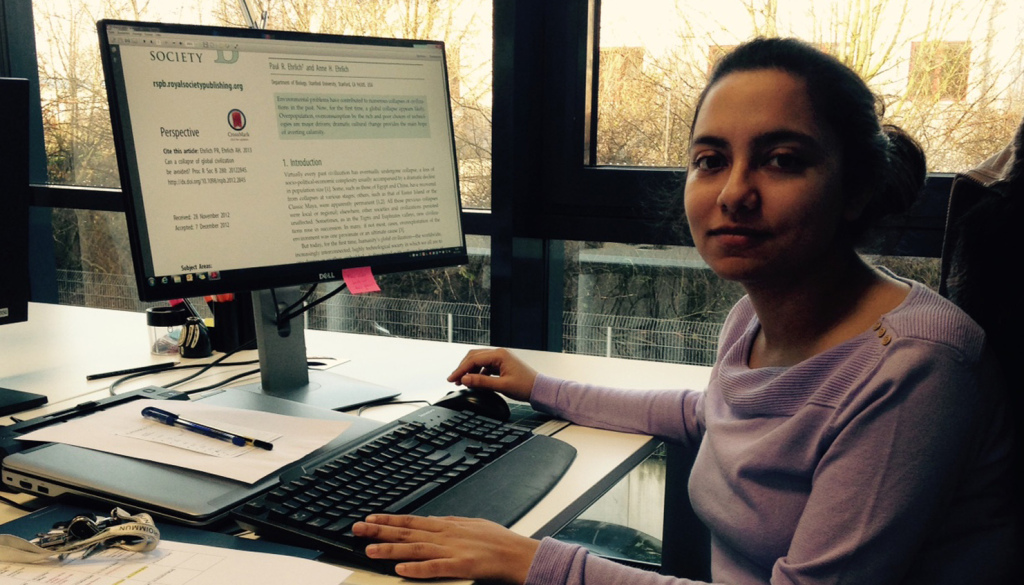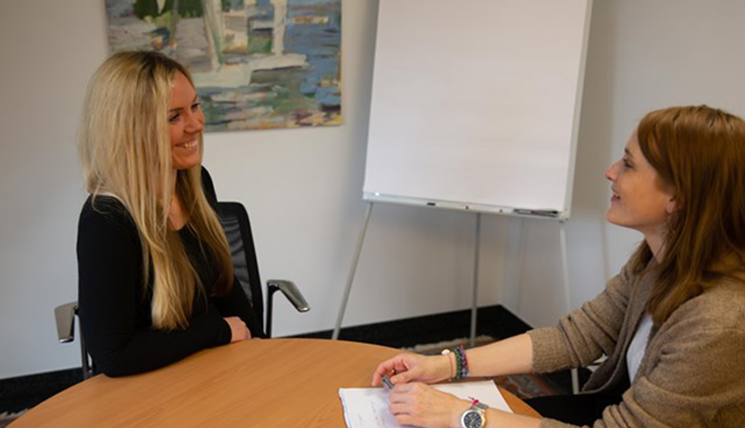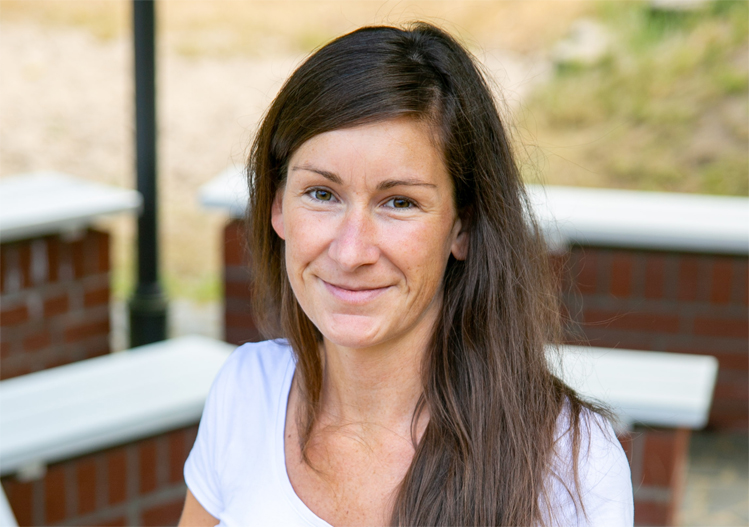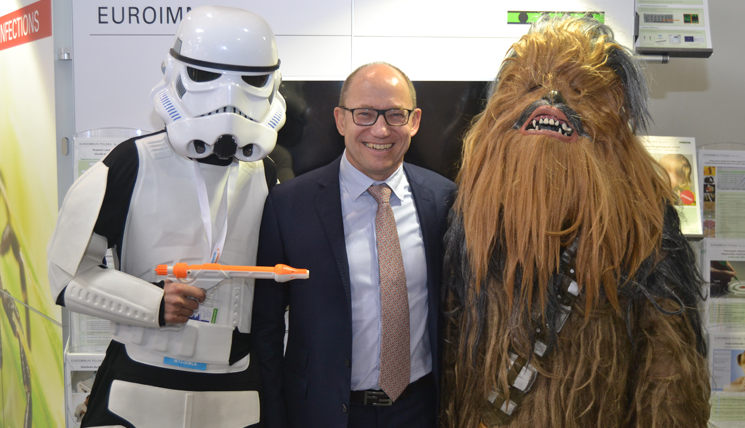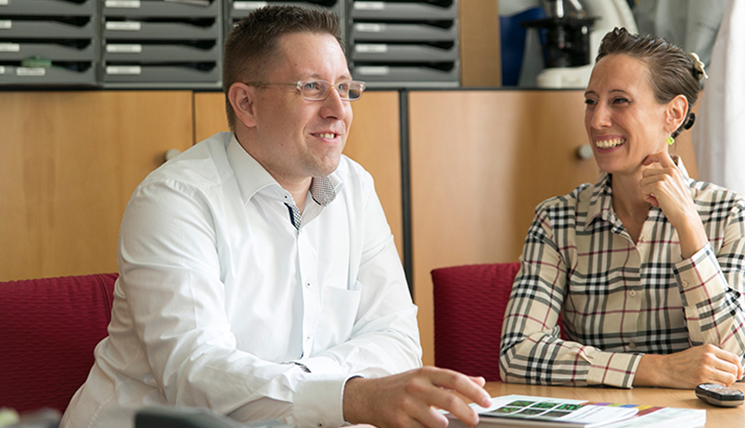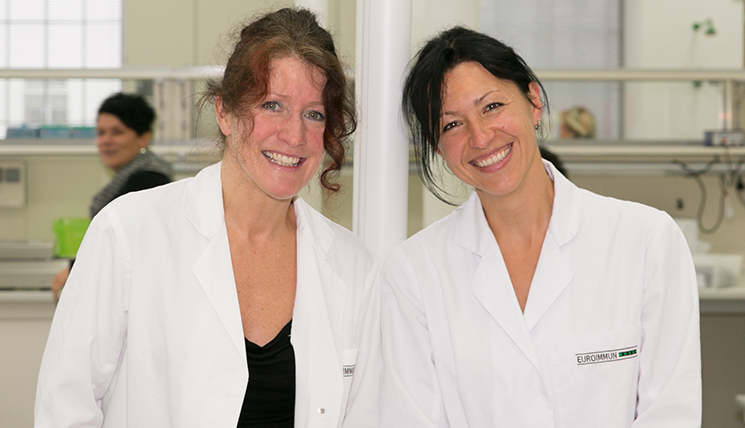Rittika is a young Indian woman who came to EUROIMMUN to do her PhD in science. Her major interest are neuroinflammatory autoimmune diseases.
Could you tell us how you got interested in this special field of biology?
It was my experience during the 15 months in Glasgow where I did my Master’ degree, working on a project related to the rare inflammatory demyelinating disease Neuromyelitis Optica (NMO) that really fueled my nebulous dreams of becoming a researcher into taking a shape and steered me into the direction of neuroimmunology. I was introduced to several concepts relating to neuroinflammation and the complexities of neuro-immune crosstalk as well as the relationship between the various molecular and cellular compartments of the central nervous system (CNS) intrigued me enough that I now had a plan for my future.
What kind of plan did you develop for yourself?
I wanted to continue with my career in this research field. But looking for a PhD project in a similar area wasn’t easy – there were several competitors for a limited number of positions and funding opportunities were not aplenty. I was also very obstinate about not making any compromises on the area of research I was interested in. However, with a little bit of luck and some patience, I ended up with my dream project!
Your dream project – what is it about?
I got accepted for a PhD in the ‘nEUROinflammation’ network which was like a fantasy – I was going to be based in EUROIMMUN with the prospect of working at another Institute for one-third of the time during the course of my degree.
Can you explain what the nEUROinflammation network is about?
Of course! The nEUROinflammation network consists of 13 laboratories/ Institutes each headed by a scientist or group of scientists renowned in their own field of research, across 7 EU countries. It, as the name suggests, aims to tackle several important questions encompassing the field of neuroimmunology.
Being a part of ‘nEUROinflammation’ provides me with an impeccable combination of the best scientific supervision and technical assistance and the opportunity to work in both academia and industry. Like me, there are twelve other students as a part of this network, each working on one different aspect of neuroinflammatory diseases like Multiple Sclerosis (MS) or ischemic stroke.
What are you working on now?
My PhD project primarily deals with the autoimmune component of neuroinflammatory diseases. I am trying to explore the humoral arm of the adaptive immune system with its relevance to disease progression and pathogenesis with the prospect of diversifying in an attempt to answer some of the core questions, for instance in MS, which are still left unanswered while other findings have yielded contradictory results.
And how are you doing with your project?
About 8 months into my PhD … I have been juggling between setting up cell culture experiments, doing some biochemical analysis and immunohistochemistry and learning to read different antibody-antigen binding patterns – an excellent and exciting tool for my project.
But work does not end in the lab – simultaneous planning for the subsequent steps, backup plans and troubleshooting are simultaneously required when you realize that ‘science’ has its own way with surprises: from the joys of getting an experiment to work after numerous tries to coping with ‘negative’ results and trying to work the alternatives!
And finally the increasing pile of unread papers in my office cupboard is a persistent reminder that no matter how much I endeavor to know about the subject there will always, always be some more to it that I will probably never understand. Maybe George Bernard Shaw’s quote rightly fits here, ‘Science never solves a problem without creating ten more.’

